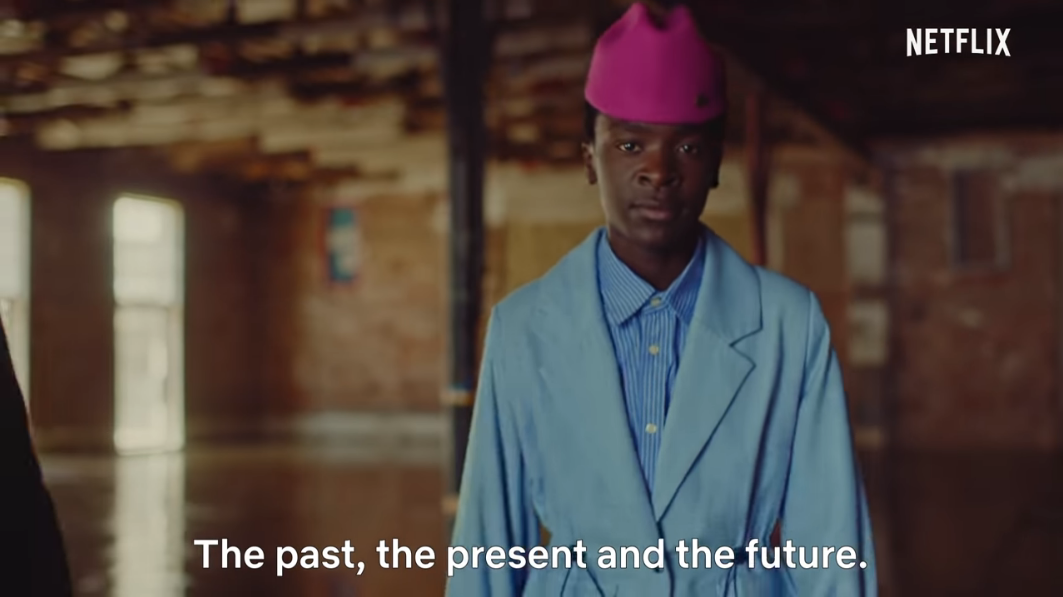Netflix announced its arrival in Nigeria in February, as Netflix Naija (“Made by Africans, Watched by the World.”)
The African film powerhouse known colloquially as Nollywood accounted for N 853.9 billion (US $7.2 billion) in 2016. Nigeria produces more films than any country excepting India—more than 2,000 each year, mostly low-budget films distributed through DVD. It’s a young industry that exploded over the last thirty years, as the technology to create and distribute quality films became first accessible, and then ubiquitous. The appetite for local stories told in local voices has only continued to grow.
As it did in the United States, Netflix’s Nigerian expansion brought huge capital with it, and raked in some of the best creative talents in Nollywood to produce films for its new venture. Consequently there has been hope that the Nigerian Netflix offerings would prove a departure from mainstream Nollywood—which, with few exceptions, offers sloppy plots, dull scenes and overcooked characters. The shakeup goes beyond content: Netflix’s arrival creates new market pressures for local streaming services such as IrokoTV, for example. It’s a big gamble all around.
The New Nollywood movement that seeks to produce higher-quality, bigger budget films for an international audience predates the arrival of Netflix. Independent directors such as Kunle Afolayan—the son of theatre and film legend Ade Love, mentored by Tunde Kelani—are setting the pace. Afolayan’s films, which include The Figurine, October 1st, and CEO, have won him a wide viewership at home and abroad.
The Nigerian films shown on Netflix so far, however, pander to an exhibitionistic culture showcasing Nigeria’s urban elites, the city’s conviviality, the performative owambe, the superficiality and the pressure to strive.
Akhigbe Ilozobhie’s directorial debut, Elevator Baby, is one of the latest. This story of a ‘spoilt brat’ opens in a night club, where the hedonistic young Dare (Timini Egbuson), flanked by ladies, amid a throng of friends, is sulking over the death of his father, Chief Williams, in an accident.
Dare’s growing intemperance eventually leads his long-suffering mother to stop his allowance. The gulf between him and his stepfather, a medical doctor, widens as well. Soon he realizes that he must look for work. On the way to an interview, he finds himself stuck in the elevator with Abigail, a pregnant working-class woman; she goes into labour, and Dare is faced with a life or death crisis. Will he rise to the occasion, and attempt an act of courage for once in life? And will we learn by the end that good bourgeois values always win, and that the virtuous rich will continue to uphold the existing order of society?
The Bling Lagosians, Merry Men, Your Excellency, Kasanova, Wedding Party, Love is War and Sugar Rush all conform to this pattern. In comparison with mainstream Nollywood, it must be said, the new Netflix films are greatly improved with respect to cinematography. Significant attention has been paid to getting the picture clean—but not the message. These films are grouted with the peculiar weaknesses of mainstream Nollywood—two-dimensional tableaux of the bourgeois Nigerian family and its stresses, and a celebration of the crass materialism that has redefined Nigerian socio-cultural space. They might as well be addressing themselves directly to the makers of poverty porn: Here we are to make a case for you.
Elevator Baby falls deeper still into the conventional traps, striking the core of patriarchal ideology by identifying the absence of fatherhood with a failure of parenting. The film paints Dare’s mother as incapable of raising her child, a message that grows increasingly apparent as he reaches a harmony with his stepfather, who is now replacing his absent father; until then, his redemption is not complete.
Even under the Netflix imprint, it seems that Nollywood films are yet to pass the Bechdel test. Traditionally, Nollywood has portrayed women as stoic and resilient, or perambulating behind the scenes as sit-back housewives with kitchen props. One might assume that this retrograde gender vision can be attributed to the blindness of male directors. But the Netflix films from women directors fare little better, with their obligatory femme fatales and their strong-willed protagonists, when one looks back at films such as The Bling Lagosians and Wedding Party. Elevator Baby at least enters, however superficially, into the subject of reproductive health.
Despite its drawbacks, Elevator Baby paints a clear, and sad, imaginative portrait of the failures of postcolonial Nigerian society, in which the epilepsy of electricity continues to retrogress the economy, and the unending squalid traffic is the ignoble and ineradicable sign of Nigeria’s most populous postcolonial city. The new Nigerian films adopted by Netflix need to recreate new energy and depth, beyond the citified aristocrats and their political allies. Viewers want true contextual parameters, idiomatic strength, and tight, well-crafted plots. Until then, Netflix Naira will remain weighted down with the anchors of stereotypes that perpetuate ideological blindness.






